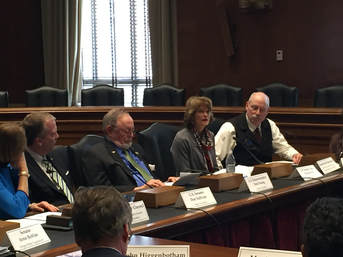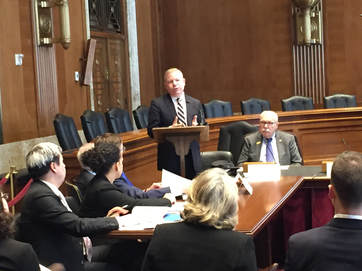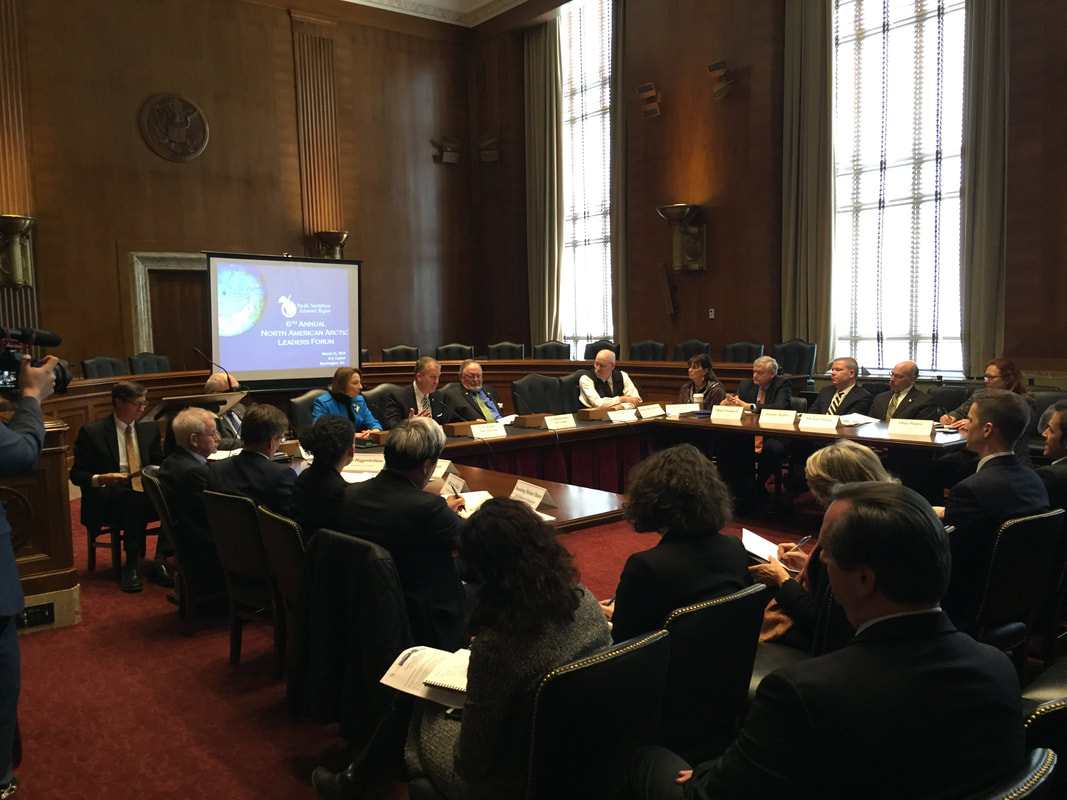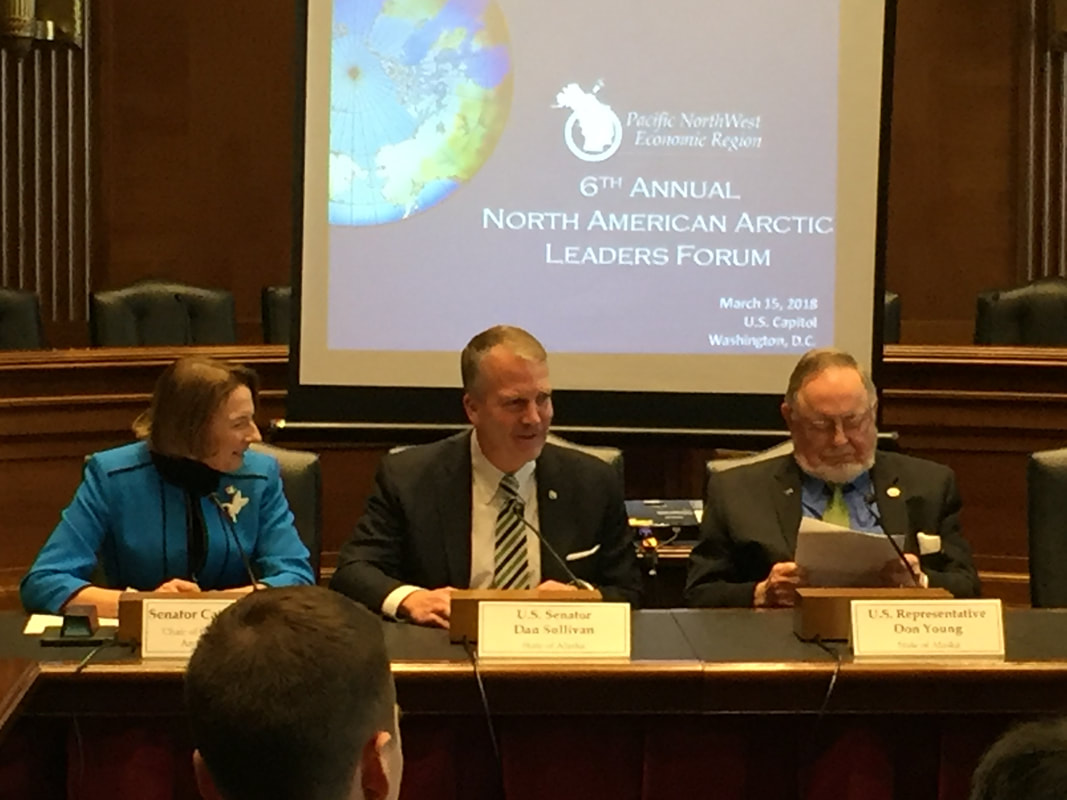|
The Pacific NorthWest Economic Region (PNWER) has a 30-year history of working with public and private sector stakeholders in the Pacific Northwest to find regional solutions to cross border challenges. PNWER facilitates cross-border collaboration and communication on a variety of issues impacting the economy through its 20 working groups, focused on the key economic sectors of the region. PNWER was chartered in 1991 by the legislatures of Alaska, Idaho, Montana, Oregon, Washington, Alberta, British Columbia, Northwest Territories, Saskatchewan, and the Yukon, and is the only statutory cross-border organization with a mission to address U.S.-Canada economic issues. The following recommendations were developed in collaboration with PNWER executive committee members, key stakeholders, and input from our 20 working groups. RecommendationsTrade and Regulatory Cooperation
U.S. Department of Commerce; U.S. Treasury Department
COVID Recovery and Supply Chain Resilience U.S. Department of Commerce
Safely Reopening the Border U.S. Department of Homeland Security
Border Technology U.S. Department of Homeland Security
Preclearance U.S. Department of Homeland Security
Columbia River Treaty U.S. Department of State
Bi-National Energy Policy U.S. Department of Energy
Cross-Border Infrastructure U.S. Department of Transportation
Aquatic Invasive Species U.S. Army Corps of Engineers
Disaster Resilience U.S. Department of Homeland Security
Forestry U.S. Department of Interior; U.S. Forest Service
Arctic Policy U.S. Department of Interior; U.S. Department of Defense; U.S. Department of Commerce
Mining U.S. Department of Commerce
0 Comments
June 13, 2018
President Donald J. Trump The White House 1600 Pennsylvania Avenue NW Washington, DC 20500 Dear President Trump, From a regional perspective in the Pacific Northwest, disrupting trade between the world’s closest allies and largest trading partners is a bad idea. Oregon Senator Arnie Roblan, current President of PNWER: “Here in the Pacific Northwest, we are stronger by working closely together, and our relationships are intact because of the ongoing partnerships in every major sector of our economy, and in state, provincial, territorial, local, and tribal governments. The US should exempt Canada from any steel and aluminum tariffs before July 1 and avoid significant disruption to the largest trading relationship in the world.” The US and Canada’s Trading Relationship is incredibly important to the Pacific Northwest. The US and Canada have the largest trading relationship in the world, and here in the Pacific Northwest, we benefit from the two way trade of over $630 Billion annually, of which $22 Billion is in the Pacific Northwest. Protectionism will seriously damage the vital economic regional partnership in both of our countries. The steel and aluminum tariffs may cost the US and Canada over $11 Billion combined, and we could see losses of over 6,000 jobs, according to CD Howe Institute, and this is likely to reduce North American competitiveness and drive competitive gains for China, Japan, and the EU. This cross border region continues to work closely together every day with our interconnected and interdependent supply chains, and dozens of cross border cooperative agreements on everything from our shared transboundary watersheds, cross border airsheds, climate action, cross border law enforcement, invasive species prevention, forest fires prevention, to defending our shared borders in the 60 year old NORAD (North American Air Defense) System. The Pacific NorthWest Economic Region (PNWER) is an example of these interconnections, and the ongoing relationships that make our bi-national region stand out in North America as a place where innovation happens, precisely because of the multi-faceted relationships of trust that have been built up for the past 30 years. PNWER Vice President of Canada, MLA Larry Doke (SK): “We are each other’s largest trading partners, and this benefits people on both sides of the border. We owe it to our constituencies to do everything we can to avoid creating an escalating trade dispute, which no one will win, and to work toward a modernized NAFTA agreement.” Sincerely, Sen. Arnie Roblan President 2017-2018 Oregon State Legislature Matt Morrison PNWER Chief Executive Officer PNWER CC: Senate President Senator Mitch McConnell Senate Minority Leader Senator Charles Schumer Senator Orrin Hatch, Chair of Senate Finance Committee Senator John Cornyn, Chair of Senate Finance, International Trade, Customs, and Global Competitiveness Subcommittee Speaker of the House Representative Paul Ryan Minority Leader Representative Nancy Pelosi Representative Kevin Brady, Chair of House Ways and Means Committee Representative David Reichert, Chair of House Ways and Means Trade Subcommittee Congressional Delegations from Alaska, Washington, Oregon, Montana, and Idaho Mr. Wilbur Ross, United States Secretary of Commerce Mr. Robert Lighthizer, United States Trade Representative Mr. Douglas Hoelscher, Special Assistant to the President, Deputy Director of Intergovernmental Affairs Full Text of Letter Alaska Congressional Delegations headlines PNWER's North American Arctic Leaders Roundtable3/23/2018
 State Senator Bert Stedman (from the right to left) Senator Lisa Murkowski, rep. Don Young, Senator Dan Sullivan and State Senator Cathy Giessel. State Senator Bert Stedman (from the right to left) Senator Lisa Murkowski, rep. Don Young, Senator Dan Sullivan and State Senator Cathy Giessel. Senator Lisa Murkowski spoke about the need to have more administrative officials understand the importance of the arctic. It cannot be the sole responsibility of Alaska officials; U.S. officials need to be educated on and advocate for arctic policies, especially policies that will endure past the current Presidential Administration. Almost all U.S. agencies have a role to play in the arctic and they need to breakdown internal silos and be more collaborative with one another. It is challenging to work with each individual agency with various arctic initiatives. Additionally, the Arctic Circle will highlight Alaska at its annual meeting in Iceland, as well as the importance of shipping in the arctic and sharing icebreaker infrastructure in North America. Rep. Don Young spoke to the challenges of working with the federal government and the need for more collaboration with the State of Alaska. He emphasized the importance of working with the International Maritime Organization (IMO) on a system for transiting the Arctic in North America. Transportation infrastructure and arctic policy with regional leaders through roundtables and consultationTransportation infrastructure and arctic policy with regional leaders through roundtables and consultation. Issues were raised during the panel discussions and roundtable of bilateral concern. Oil and gas development in Alaska could pose a threat to the porcupine caribou herd that migrates across the region. According to U.S. officials, there are vacancies on the International Porcupine Caribou Board, a body established by a bilateral agreement to address issues with the herd. Moreover, sufficient oil spill response equipment is another area in need of transboundary attention. Representatives from Canada emphasized the systemic nature of the Arctic, and any environmental disaster will not be confined to its source. Communication BarriersJohn Higginbotham, Centre for International Governance Innovation (CIGI) spoke about the need for the governments to work together especially on Arctic policy and the importance of the prime minister and president to work together on arctic issues. Adrianna Muir, Deputy Senior Arctic Official from the U.S. State Department spoke about the need for all levels of the federal government agencies to communicate across silos. This theme was mentioned during Senator Murkowski’s remarks on fixing communication barriers across the federal government. She also recognized Alaska’s role as a leader in the Arctic. Senator Stedman added that arctic communities want infrastructure and desire to see their communities share in the same technological advancements as other U.S. cities. Arctic Shipping Speaker: Jeremy Mathis from the National Oceanic and Atmospheric Administration. Speaker: Jeremy Mathis from the National Oceanic and Atmospheric Administration. Shipping infrastructure is critical to the economic viability of the Arctic, and may also present the best business plan for the region. An Arctic Seaway that guarantees port access, icebreaking services, and search and rescue capabilities could reduce liability for international transport companies. The plan’s user fee model could recoup infrastructure construction and operating costs as shipping traffic is expected to increase in the Arctic. Mike Sfraga from Wilson Center Polar Initiative, Mead Treadwell, PT Capital and Jeremy Mathis, National Oceanic and Atmospheric Administration spoke about the opportunities for arctic shipping in the region and outlined a couple innovative ideas on working together on transiting the region. An example of similar program conducted in the St. Lawrence Seaway was showcased as a possible solution for collecting fees for managing the northwest passage waterway. When a ship transits the waterway, the U.S. and Canada coordinate with each other throughout a ship’s transit. Some challenges exist as far as infrastructure and rules for ships traveling through the region. Additionally, Canada and the U.S. still have a dispute on sovereignty of the region and the national border. More work needs to be done in both countries to create a shared system for monitoring ships and collecting fees for managing the waterway. The Wilson Center is hosting a conference on Arctic port infrastructure later this summer. ConclusionThe event concluded by looking towards the future. In particular, the roundtable discussed the proposed Alaska LNG pipeline and potential Chinese investment in the project. China and Alaska have signed memorandum of understanding to develop the project with a percentage of the gas supply guaranteed for the Chinese market. The Roundtable was an exciting chance for arctic experts to share ideas and topics impacting the North American Arctic. ResourcesSteve Myers, Senior Program Manager, PNWER and Michael Mauer, M.A. Candidate, May 2018, International Economics & Conflict Management, Johns Hopkins School of Advanced International Studies (SAIS) contributed to this article.
|
Archives
August 2023
Topics
All
|
|
World Trade Center West
2200 Alaskan Way, Suite 460 Seattle, WA 98121 |
|


